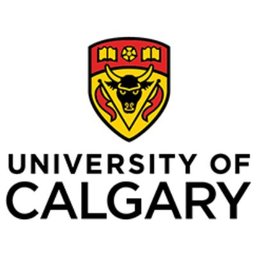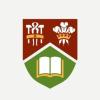Sessional Instructors: Department Of Mathematics And Statistics, Faculty Of Science
Calgary, AB, CA, Canada
Job Description
Description
The
Department of Mathematics and Statistics
, within the Faculty of Science, invites applications forSpring and Summer 2025 Term Sessional Instructor(s)
.The successful candidates will have responsibilities for lecture instruction, lab co-ordination, and any other associated duties, for these courses offered during the Spring and Summer 2025 Term session.
MATH 209 - Applied and Computational Linear Algebra for Energy Engineers - Spring 2025
An introduction to systems of linear equations, vectors in Euclidean space, matrix algebra, linear transformations, eigenvalues and eigenvectors. Geometrical applications and computing techniques will be emphasized. Students will complete a project using mathematical software.
MATH 211 - Linear Methods I - Spring 2025
An introduction to systems of linear equations, vectors in Euclidean space and matrix algebra. Additional topics include linear transformations, determinants, complex numbers, eigenvalues, and applications.
MATH 249 - Introductory Calculus - Spring 2025
An introduction to single variable calculus. Limits, derivatives and integrals of algebraic, exponential, logarithmic and trigonometric functions play a central role. Additional topics include applications of differentiation, the fundamental theorem of calculus, improper integrals and applications of integration.
MATH 265 - University Calculus I - Spring 2025, Summer 2025
An introduction to single variable calculus intended for students with credit in high school calculus. Limits, derivatives, and integrals of algebraic, exponential, logarithmic and trigonometric functions play a central role. Additional topics include applications of differentiation; the fundamental theorem of calculus, improper integrals and applications of integration. Differential calculus in several variables will also be introduced.
MATH 311 - Linear Methods II - Spring 2025
An introductory course in the theory of abstract vector spaces: linear independence, spanning sets, basis and dimension; linear transformations and the rank-nullity theorem; the Gram-Schmidt algorithm and orthogonal diagonalization; singular value decomposition and other applications.
MATH 331 - Advanced Calculus for Energy Engineering - Summer 2025
A broad introduction to ordinary differential equations, multivariable calculus and elements of vector calculus. Differential equations: linear ordinary differential equations, and systems of linear ordinary differential equations. Calculus of several variables: partial differentiation, the chain rule, double and triple integrals. Vector Calculus: vector fields, line integrals, and flux integrals.
STAT 205 - Introduction to Statistical Inquiry - Spring 2025
The systematic progression of statistical principles needed to conduct a statistical investigation culminating in parameter estimation, hypothesis testing, statistical modelling, and design of experiments.
STAT 213 - Introduction to Statistics I - Spring 2025
Introduction to probability, including Bayes' law, expectations and distributions. Discrete and continuous random variables, including properties of the normal curve. Collection and visual display of single and multi-dimensional data. Introduction to statistical modelling and estimation. Parametric and simulation-based confidence interval estimation.
STAT 217 - Introduction to Statistics II - Spring 2025
Parametric and simulation-based hypothesis testing, and associated errors. Confidence intervals and hypothesis testing for differences between two parameters, both parametric and simulation-based. Tests of association and goodness-of-fit. Statistical modeling and parametric testing of both the simple and multiple-model. Diagnostic checking. Analysis of variance.
STAT 321 - Introduction to Probability - Spring 2025
A calculus-based introduction to probability theory and applications. Elements of probabilistic modelling, Basic probability computation techniques, Discrete and continuous random variables and distributions, Functions of random variables, Expectation and variance, Multivariate random variables, Conditional distributions, Covariance, Conditional expectation, Central Limit Theorem, Applications to real-world modelling.
Delivery Mode:
All course components will be delivered in-person.Spring 2025 Term Dates:
Thursday, May 1, 2025, to Sunday, June 29, 2025.Summer 2025 Term Dates:
Monday, June 30, 2025, to Sunday, August 24, 2025.Qualifications:
Applicants should have a minimum of an MSc in Mathematics and Statistics or a closely related discipline, however, a PhD is preferred. Preference will be given to graduate students and postdocs in our program looking to obtain teaching experience, followed by applicants with a postgraduate degree.
Please apply on-line via the 'Apply Now' link. A complete application should be submitted in
a single pdf
, and include the following:Cover letter. Current curriculum vitae. Statement of teaching philosophy, including fostering an inclusive learning environment Evidence of teaching effectiveness. Three letters of reference (can be submitted with the pdf application or sent under separate cover, by the application deadline to sci.admins@ucalgary.ca)
NOTE:
Applicants who have taught as a sessional instructor in the Faculty of Science within the past two years may choose to only submit a cover letter and current CV. Multiple individuals may be hired to instruct different courses and, therefore, applicants are encouraged to indicate the course(s) they are interested in and qualified to teach.
Application Deadline: March 7, 2025
Please visit https://science.ucalgary.ca/mathematics-statistics for further information about the Department of Mathematics and Statistics.
Remuneration is calculated according to the Collective Agreement, Schedule B. Please see the Faculty Association's website at www.tucfa.com for further information regarding conditions of employment and remuneration.
As per the Collective Agreement, the Department of Mathematics and Statistics will adhere to the right of first refusal terms (Section 23.12.1 and 23.12.2) for Sessional Appointments.
Thank you for submitting your online application. Only those candidates chosen to proceed in the selection process will be contacted.
The University of Calgary has launched an institution-wide Indigenous Strategy committing to creating a rich, vibrant, and culturally competent campus that welcomes and supports Indigenous Peoples, encourages Indigenous community partnerships, is inclusive of Indigenous perspectives in all that we do.
As an equitable and inclusive employer, the University of Calgary recognizes that a diverse staff/faculty benefits and enriches the work, learning and research experiences of the entire campus and greater community. We are committed to removing barriers that have been historically encountered by some people in our society. We strive to recruit individuals who will further enhance our diversity and will support their academic and professional success while they are here. In particular, we encourage members of the designated groups (women, Indigenous peoples, persons with disabilities, members of visible/racialized minorities, and diverse sexual orientation and gender identities) to apply. To ensure a fair and equitable assessment, we offer accommodation at any stage during the recruitment process to applicants with disabilities. Questions regarding [diversity] EDI at UCalgary can be sent to the Office of Institutional Commitments
(
equity@ucalgary.ca) and requests for accommodations can be sent to Human Resources (
hrhire@ucalgary.ca).All qualified candidates are encouraged to apply; however Canadians and permanent residents will be given priority. In this connection, at the time of your application, please answer the following question: Are you a Canadian citizen or a permanent resident of Canada? (Yes/No)
For a listing of all academic opportunities at the University of Calgary, view our
Academic Careers website
. For more information about theFaculty of Science
, click here.About the University of Calgary
UCalgary is Canada's entrepreneurial university, located in Canada's most enterprising city. It is a top research university and one of the highest-ranked universities of its age. Founded in 1966, its 36,000 students experience an innovative learning environment, made rich by research, hands-on experiences and entrepreneurial thinking. It is Canada's leader in the creation of start-ups. Start something today at the University of Calgary. For more information, visit ucalgary.ca.
About Calgary, Alberta
Calgary is one of the world's cleanest cities and has been named one of the world's most livable cities for years. Calgary is a city of leaders - in business, community, philanthropy and volunteerism. Calgarians benefit from a growing number of world-class dining and cultural events and enjoy more days of sunshine per year than any other major Canadian city. Calgary is less than an hour's drive from the majestic Rocky Mountains and boasts the most extensive urban pathway and bikeway network in North America.
Beware of fraud agents! do not pay money to get a job
MNCJobz.com will not be responsible for any payment made to a third-party. All Terms of Use are applicable.
Job Detail
-
Job IdJD2381022
-
IndustryNot mentioned
-
Total Positions1
-
Job Type:Full Time
-
Salary:Not mentioned
-
Employment StatusPermanent
-
Job LocationCalgary, AB, CA, Canada
-
EducationNot mentioned

